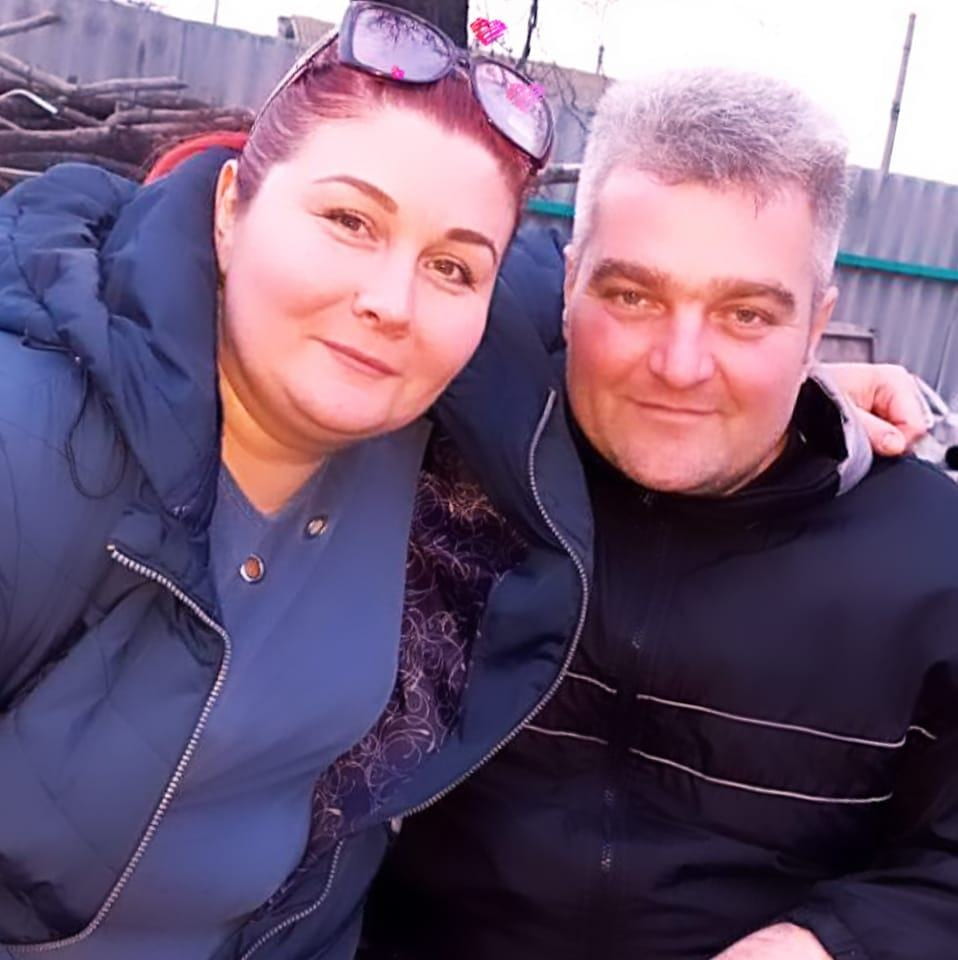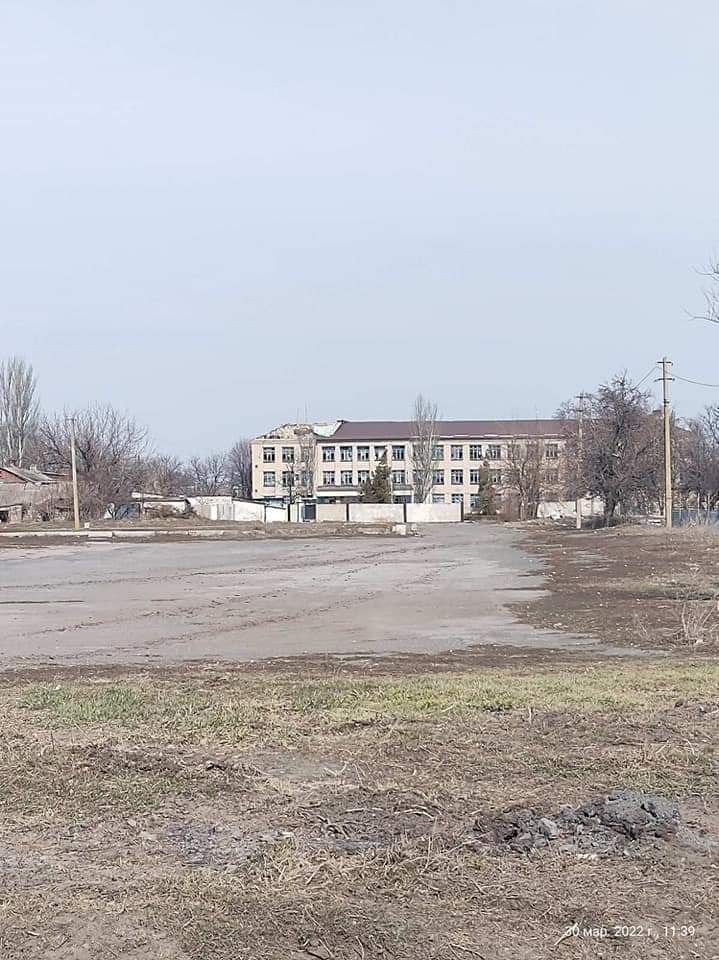A story of Ukrainians who passed Russian filtration to flee occupation

By Anna Romandash
“Our story began in 2014,” Iryna says, “We’re from Donetsk. We lived practically on the separation line.”
Iryna Bilousova is a Ukrainian. Since mid-2022, she is also a refugee after she and her family had to flee Eastern Ukraine from Russian occupation.
For Iryna, this is her second escape. Nine years ago, when Russians first occupied Donets and Luhansk, she had to run from her home to the territory controlled by Ukraine. The separation line was the divide between the Ukrainian forces and Russian proxies established in 2014 as Russians attempted to seize more Ukrainian land.
“For three months, we lived in constant fear,” Iryna recalled her 2014 experience, “We feared for our lives, and for the life of my mom, who is in a wheelchair. When we rushed into the basement, she stayed inside the house. It was very hard.”
Iryna is a mother of four children, three young boys and a teenage daughter. Together with her husband, she took care of them and her elderly mother. When the war in Donbas started, Iryna and her husband could not work anymore because their house was between constant shelling.
“We had no jobs, no money, and no food,” the woman recalled, “Thanks to the neighbors, who brought children some food, we could survive. But in September [of 2014], we realized that we could no longer go on like that.”
The family decided to flee to the territory controlled by Ukraine. They moved into a village in Donetsk region, not too far from their previous home in the city of Donetsk. Volunteers helped the family find a house.
“We got a lot of help from the people, especially from Ukrainian soldiers who were stationed nearby,” Iryna said, “Things started to improve, and we had a good life for these past eight years.”
Everything changed on February 24, 2022.
“At five in the morning, the invaders entered our village,” the woman continued, “It was a complete horror. They would shoot from their tanks near our house, and then move away from that place. Then, our guys [Ukrainian soldiers] would shoot back to the place where tanks were stationed before.”
The family was in the basement when a projectile landed six feet from their house.
“We were almost buried under the rubble,” Iryna remembered, “And then, I had to make the hardest decision in my life: to choose between my mom and my children. My mom told me that children needed me, and that she’d manage somehow.”
Life in occupation

Iryna’s mother could not stay in the basement, and it was difficult to transport her up and down. The older woman stayed in her house while Iryna and her husband would come there between the shelling, feed her, and turn on the stove to make the place a bit warmer.
“Life in occupation is scary,” Iryna said, “After Russians entered our village, there were hands, heads, and bodies everywhere. Corpses on the streets. Russians didn’t pick them up.”
The dead bodies were of Russian soldiers and Ukrainian locals killed by the invading army. The villagers collected the corpses in one spot and covered them with blankets. Iryna recalled seeing how hungry dogs would run around with human parts.
“These monsters [Russian soldiers] went from house to house and took people’s cars,” the woman proceeded, “Then, when they got drunk, they’d drive the cars around. They also moved into the houses they liked the most and roamed around looking for food. The scariest part when these drunk beasts – that’s the only way to describe them – started coming to our bomb shelter.”
Russians were looking for local women in the basements, Iryna explained.
“They’d say things like “You’ve got so many pretty girls, and we have none,” the woman continued, “So we had to hide our daughter. She was seventeen. Our neighbor’s daughter was almost raped, but her parents rescued her.”
After the talk about “pretty girls”, the family decided to flee. They could not enter Ukraine-controlled territory because Russian troops didn’t allow people to evacuate there.
“We decided to drive to Russia because my husband had sisters there,” Iryna said, “The drive took four days, and my mom barely survived it.”
Donetsk region borders Russia; during a normal pre-war drive, it would take only a few hours to cross the border. However, the family had to make many stops at various check-points and avoid getting shot at.
Filtration camps
The family also had to pass filtration to leave the occupied areas.
“We were in Bezimenne,” Iryna said, “We were very lucky and passed filtration in two hours. There were people who stayed in the camp for weeks.”
Bezimenne is a village in Donetsk region, on the Azov Sea coast. It is only 20 miles away from Mariupol, and less than an hour drive to the Russian border. Since 2014, the village has been under Russian occupation and hosts a notorious filtration camp. Ukrainians who want to flee the occupied areas have to pass a set of tests carried out by Russians; the filtration is used to torture and kill people who don’t agree to declare their hatred for Ukraine.
“When we arrived in Bezimenne, we told a Russian soldier that we were with children and a disabled person,” Iryna recalled, “The soldier was really rude. He was like: “Who allowed you to talk to me?” I told the guy that we have a disabled person in the car, and that she could not move and was in a very bad shape.”
The woman asked the soldier if she could go through filtration immediately. By that time, there was a line of Ukrainians waiting to pass, and it took days or weeks even to get to the questioning. In the meantime, people had to wait outside.
A higher-ranking soldier showed up and allowed Iryna and her family to go for filtration without waiting in the queue.
“We entered one tent,” Iryna said, “It was me, and then, it was my fourteen-years-old son. They asked us questions and we had to answer saying that Ukraine was very bad, that Ukrainian army was very bad, and so on. It was very tough for my husband. A Russian soldier saw that we were from Donetsk originally, and he started yelling at my husband. He called him a “f***er” and yelled at him for not joining the Russian army. The guy was screaming things like “You went to Ukropia! [derogatory for Ukraine]. And I have to protect you? We will send your family away, and we will take you with us!”
The questioning lasted for around an hour, with Russian soldiers threatening her husband and telling him they’d beat him up.
“When my husband was done, he was white as a ghost,” Iryna recalled, “His hands still shake as he remembers that. But, thank God, they let us pass. They checked our phones and allowed us to go.”
The family’s experience with filtration is better than most people who went through it; many are stripped naked and tortured if they have any Ukraine-themed tattoos or don’t answer the questions the way they are expected.
“You have to tell them what they want to hear,” Iryna explained, “About Russia, about Ukraine, about the war. That’s the only way to pass.”
Escaping Russia

“We spent two months in Russia,” Iryna continued, “We needed money to move farther, and my mom needed time to come back to her senses. She almost lost her mind during the occupation because she lived alone without any electricity.”
Iryna and her husband managed to find some temporary jobs and raised a bit of money to leave Russia. They started looking for buses and private drivers. The prices were too high.
“That’s when I found the volunteers,” Iryna said, “And they helped! Thanks to them, we are no longer shaking whenever we hear some noise, and we’re starting to get used to the sound of planes and helicopters.”
The woman is referring to mushrooming civil society groups which help deported Ukrainians escape Russia and enter neighboring EU countries. Volunteers – mostly Ukrainians based in Ukraine and Baltic countries – connect with Ukrainians in Telegram and help them with transportation, money, and advice.
“A volunteer-coordinator reached out to us, and helped us drive from Rostov-on-Don to Estonia,” Iryna said, “She was with us on the line throughout the entire journey. The coordinator sent us the safest route because we were driving with a disabled person.”
When the family was crossing the Russian-Estonian border, they were also questioned for a few hours by the Russian officers. The questions were similar to the ones they heard during the filtration process.
“Russians asked us why we wanted to leave Russia instead of staying there,” Iryna added, “But this questioning was less scary and without yelling.”
From Estonia, the family drove to Germany where they applied for refugee status. In early January, they were informed that their refugee camp is going to shut down in mid-March.
“They told us that the land was sold, so we have to look for another housing,” Iryna said, “Those who can’t find anything can go to another refugee camp, which is in the suburbs. But it’s not as good, and they wouldn’t accept my mom there. They wanted to send her into a nursing home for disabled people instead. That’s why we’re running around now and looking for housing because I don’t want to separate from my mom.”
“So, this is what it’s like to live in Germany as a refugee,” she added, “It’s not all that great, but at least, it is peaceful here. So, we can manage.”
Besides Iryna’s family, the camp hosted many other Ukrainians. Iryna made many friends who are in a similar situation to hers.
“The main thing is that we’re all alive and together,” she concluded, “So all is going to be okay.”
Anna Romandash is a Ukrainian freelance journalist and 2022 Research Affiliate at the Mgrublian Center for Human Rights at Claremont McKenna College
